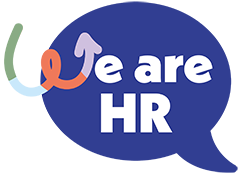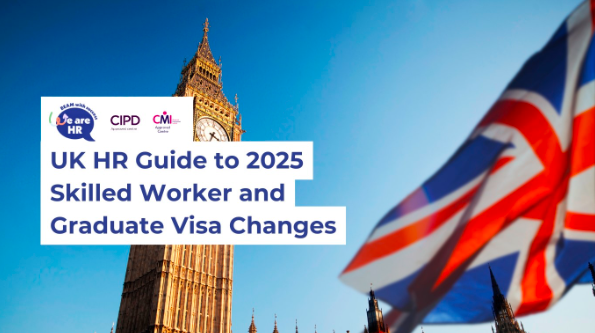Table Of Contents
- UK HR Guide to 2025 Skilled Worker and Graduate Visa Changes
- Introduction
- The Role of HR in UK Immigration Compliance
- Overview of the Skilled Worker and Graduate Visa Routes
- Key Visa Changes in 2025
- What HR Teams Must Do to Stay Compliant
- Challenges and Considerations for International Graduate Hiring
- Planning: HR Strategies for the New Immigration Landscape
- Case Study: How a UK Employer Adapted Successfully
- UK Immigration Policy
- Final Thoughts
Introduction
With the UK government implementing major updates to the immigration system in 2025, HR professionals are facing increased responsibility in ensuring legal and strategic hiring practices. These changes are especially significant for businesses relying on international talent through the Skilled Worker and Graduate visa routes.
In this blog, we break down what HR leaders, talent acquisition teams, and in-house recruiters need to know to stay compliant, competitive, and prepared in a rapidly evolving environment.
The Role of HR in UK Immigration Compliance
HR is the front line of immigration compliance. From issuing Certificates of Sponsorship (CoS) to ensuring salary thresholds are met, HR teams must now balance regulatory requirements with talent acquisition strategies more than ever before.
Failing to comply with immigration rules not only affects the candidate but could lead to sponsor licence suspension or revocation for the company. This makes training and awareness critical for HR departments, particularly in sectors like healthcare, education, and technology.
Overview of the Skilled Worker and Graduate Visa Routes
- Skilled Worker Visa: Allows overseas professionals to work in eligible UK roles with an approved sponsor. This visa is a long-term option that can lead to settlement.
- Graduate Visa: A post-study work visa allowing international graduates from UK universities to work or job hunt for up to 2 years (3 years for PhDs), without needing sponsorship.
These routes are often used in tandem, with many graduates transitioning into Skilled Worker status after gaining initial UK work experience.
Key Visa Changes in 2025
Updated Salary Thresholds
- New minimum salary: £38,700 annually or £15.88 per hour.
- Impact: Entry-level roles, particularly in education, social care, and some STEM fields, may struggle to meet this requirement.
- Exceptions: New entrants, such as recent graduates under 26, may qualify for a lower threshold, though this still poses challenges.
(Source: Jobbatical)
Sponsorship and Recruitment Reforms
From 9 April 2025, care providers in England must prove they have attempted to fill vacancies domestically before turning to international candidates.
Implication:
- Other sectors may soon face similar restrictions.
- HR teams must maintain detailed recruitment records, showing local hiring efforts before issuing a CoS.
(Source: Centuro Global)
Compliance Monitoring and Licence Revocations
Increased enforcement is leading to more sponsor licence revocations. In 2024 alone, 513 licences were revoked by Q3, up from 377 in 2023.
What this means:
- UKVI is cracking down on noncompliance.
- HR must maintain accurate and auditable records of job roles, salaries, and right-to-work checks.
What HR Teams Must Do to Stay Compliant
- Review Salary Structures: Ensure advertised roles meet or exceed current visa salary thresholds.
- Audit Sponsorship Processes: Maintain documentation such as interview notes, job advertisements, and CoS allocations.
- Stay Updated: Monitor Home Office updates regularly or subscribe to immigration law alerts.
- Right to Work Checks: Perform and document checks as required for all employees, especially visa holders.
- Training: Upskill your team on immigration compliance to avoid costly mistakes.
Additionally, HR professionals should build a culture of compliance by integrating immigration considerations into recruitment, onboarding, and workforce planning processes.
Challenges and Considerations for International Graduate Hiring
International graduates often bring energy, new perspectives, and multilingual skills. But the route from Graduate visa to Skilled Worker visa is becoming narrower:
- Many graduate salaries fall below the £38,700 requirement.
- Roles must be classified as graduate level or higher.
- There is growing pressure from government to reduce net migration, which may bring further restrictions.
This environment can make it difficult for employers to retain talented graduates who might otherwise contribute significantly to their workforce. Employers should evaluate job descriptions and pay scales to see if strategic changes can be made to accommodate this pipeline of talent.
(Source: Ward Hadaway)
Planning: HR Strategies for the New Immigration Landscape
Here’s how HR departments can future proof their recruitment and compliance processes:
- Map Out Talent Pipelines: Identify which roles may need sponsorship and ensure they align with salary expectations.
- Engage with Universities: Build partnerships for early access to international talent and graduates.
- Leverage Legal Partners: Immigration law firms can help manage compliance, audits, and appeals if needed.
- Scenario Planning: Prepare for potential changes to the Graduate visa, such as stricter job type requirements or reduced validity.
Also consider creating an internal knowledge base on immigration requirements, appointing immigration leads in HR teams, and investing in tech tools to manage visa deadlines and document storage securely.
Case Study: How a UK Employer Adapted Successfully
One mid-sized healthcare provider in Manchester faced challenges when trying to retain overseas nurses’ post-graduation. Their graduate salaries were below the new Skilled Worker visa threshold.
Solution:
- Conducted a salary benchmarking exercise and adjusted pay structures.
- Partnered with a legal consultancy to streamline sponsorship processes.
- Created tailored onboarding paths to help international recruits meet compliance requirements.
Result: They successfully retained over 70% of their international graduate hires and passed a UKVI audit with no issues.
UK Immigration Policy
Policy discussions suggest that immigration will remain a hot topic politically in the coming years. The Migration Advisory Committee (MAC) is expected to review several aspects of the Graduate visa in 2025, which may result in further tightening.
Employers should anticipate:
- More rigorous conditions attached to post study work routes.
- Possible sector specific visa caps.
- Increased scrutiny during sponsor licence renewals.
Final Thoughts
The 2025 changes to the UK’s Skilled Worker and Graduate visa system are a clear signal: immigration rules are becoming stricter, and enforcement is rising. For HR professionals, this is a critical moment to align hiring practices with compliance while still accessing the global talent your organisation needs.
If you are an experienced HR professional or just starting your journey, check out CIPD qualifications here to develop the skills and knowledge you need to excel.


